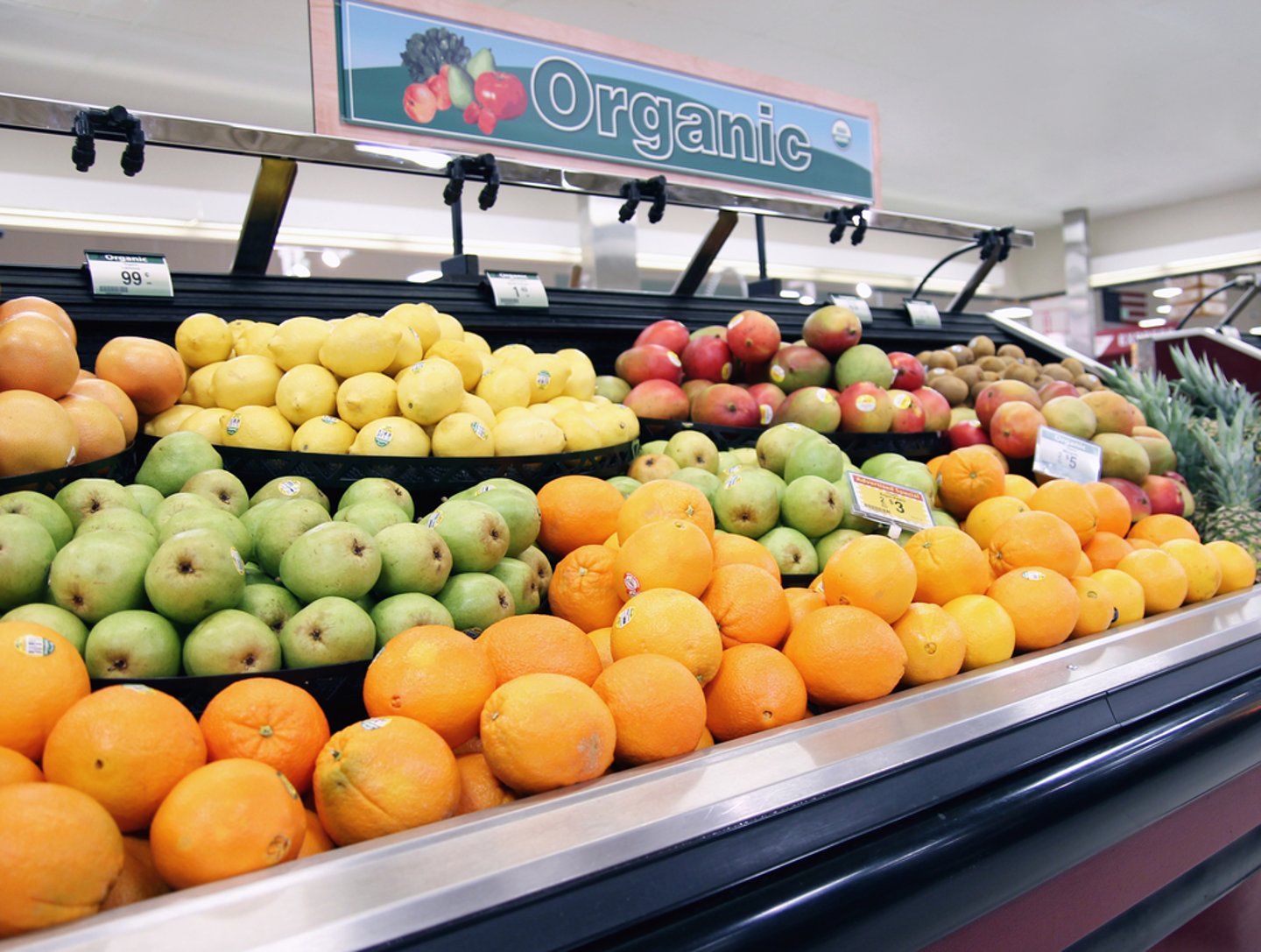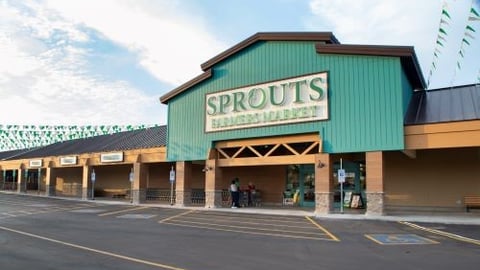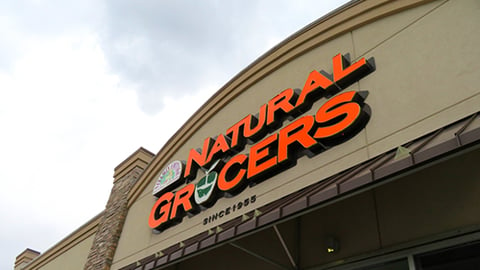How Grocers Can Spur Natural, Organic Product Growth
As consumers increasingly focus on health, natural and organic products are becoming powerful growth drivers across all channels. According to a recent Acosta Group natural and organic study, 75% of all shoppers bought at least one natural or organic product in the six months before the survey, with 59% saying that they think it's important that their groceries and/or household items are natural and/or organic. The study, conducted with Acosta’s proprietary U.S. Shopper Community, spotlights several key insights to support further category growth ahead of Expo West, slated for March 4-7 in Anaheim, Calif.
“Our natural and organic shopper study reflects opportunities for brands and retailers to build increased shopper trust, loyalty and sales,” notes Kathy Risch, SVP, thought leadership and shopper insights at Acosta, a Jacksonville, Fla.-based retail, marketing and foodservice agency collective. “Three key learnings include the growing role of natural and organic products for consumers, especially related to health, the value of product placement in the natural channel, and the need for education on the definition and benefits of natural and organic products.”
In its recent 2025 consumer predictions, Acosta said that empowered shoppers would drive change in health and wellness, and that individualized health management was on the rise. The study confirmed that the main driver for natural and organic product sales is a prioritization of health, as the overall category continues to grow. Findings included:
- 58% of shoppers buy natural and/or organic products because they “are better for them” (healthier) and “tend to have fewer synthetic chemicals and additives.”
- Younger consumers are even more likely to be natural and organic shoppers, with 89% of Gen Z and 85% of Millennials saying that they’ve shopped for natural and organic products in the previous six months.
- Shoppers said that they purchased more natural (23%) and organic (22%) products in the prior six months.
- The “food as medicine” movement is expected to rise in popularity.
Interestingly, even as consumers are shopping for more natural and organic products, conventional shopping hasn’t been adversely affected, with natural and organic shoppers saying that half of their carts consist of conventional products.
[RELATED: Acosta Group Ready to Help Retailers, Brands Win]
“The natural and organic shopper is now considered mainstream,” asserted Andrew Fleming, SVP, Impact Natural, an Acosta division offering deep expertise in natural and organic brands and retailers. “To drive expanded sales for brands and retailers, we need to highlight the specific health benefits of natural and organic products, paying special attention to Millennials and households with children.”
The study underscores the value of prioritizing placement of natural and organic products in natural stores while maintaining a presence in other retail channels. The reasons for this are as follows:
- Seeing a brand in natural stores raises perception of that brand for 53% of natural channel shoppers and 37% of all shoppers.
- 82% of natural channel shoppers strongly agree that natural stores provide the best selection, 71% believe that the quality of products is greater in these stores, and 66% believe that the stores’ associates are better suited to assist with questions.
Acosta found that natural and organic shoppers shop at a wider range of channels than conventional shoppers, mainly mass merchandisers, traditional grocery and warehouse/club. These shoppers are additionally five times more likely to shop at farmers markets, three times more likely to shop online and two-and-a-half times more likely to shop at convenience stores.
“Emerging and established brands benefit from natural channel distribution, which elevates brand perception and trust,” noted Fleming. “Distribution across other retail channels ensures that all natural and organic shopper needs are met.”
The study also found that today’s shoppers have no more clarity on the differentiation of “natural” and “organic” than they did when polled in 2022. While the industry defines the terms separately, there’s no difference to many shoppers, resulting in confusion about product benefits and misperceptions regarding taste and price.
- 40% of all shoppers believe that “natural” and “organic” mean the same thing or aren’t sure of the difference, rising to 50% for conventional shoppers.
- Confusion contributes to 18% of conventional shoppers not buying natural and organic products because they don’t know enough about the difference.
- 72% of conventional shoppers identify affordability as the top reason for not buying natural or organic in the previous six months.
- Natural and organic shoppers have a positive perception of product taste, while conventional shoppers don’t.
“This is the time for natural and organic brands and retailers to build direct connections with consumers, informing them of the facts and benefits of the products, dispelling misperceptions, and driving trial and loyalty,” advised John Carroll, president, digital commerce and advanced analytics at Acosta. “We know from our studies that transparency is highly important to health-conscious consumers who no longer trust brand marketing messaging they believe is healthwashed. Shoppers are turning to digital tools and online communities to gather product information.”
Consumers find out about new items most often via social media, friends or family (52%), and search engines (43%). After discovering a new item, most shoppers (57%) seek more information and availability using search engines.
[RELATED: 5 Habits of Gen Z Shoppers That Grocers Should Heed]
“To educate consumers, we need to develop customized messaging for target audiences, implementing a toolkit of retail media, product detail page (PDP) content management and in-store strategies to create an informative, seamless experience,” added Carroll. “We know that consumers are willing to pay more when they understand the benefits and value of natural and organic products, and they are looking for trusted resources to gain product knowledge.”
Shopper research for the study was conducted Oct. 18-29, 2024, with 1,521 shoppers, members of the company’s proprietary Shopper Community, comprising more than 40,000 demographically diverse shoppers across the United States.
On Wednesday, March 5, Acosta Group will sponsor the keynote, “The State of Natural & Organic,” from 8:30-10 a.m. PST at Expo West in the Marriott Marquis Ballroom Center. Ashley Roehm, president, Acosta, an Acosta Group agency, will provide opening comments. Later that day, from 1:30-2:30 p.m. PST, Risch is participating in an educational session, “Growing Success at Retail: Who Are Today’s Organic and Regenerative Shoppers?” a panel discussion with leading industry experts, in the Marriott Grand Ballroom E.






